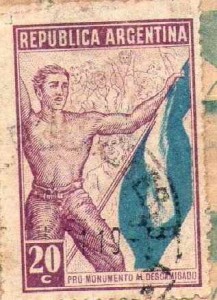 Cross-posted on the Corner:
Cross-posted on the Corner:
There was an exultant article by Jonathan Freedland over in the Guardian a couple of days ago proclaiming Pope Francis an “obvious hero of the left.” I wrote something about it over at Ricochet, but it’s also worth highlighting a different piece, linked to by Freedland as evidence of the discomfort that some free market folk feel over the pope’s economic pronouncements. It was written back in September by Phillip Booth of Britain’s Institute of Economic Affairs.
Here’s an extract:
…[John Paul II] was not only right to suggest that the word ‘capitalism’ might be confusing but he also talked elsewhere in the encyclical about how capitalism must have people at its centre, must operate in a juridical framework, must avoid the problems of monopolies, and so on. Indeed, implicitly Pope John Paul was criticising the crony capitalism systems such as those in South America and Italy that use the apparatus of the state together with the power of financial interests to oppress the people rather than to serve the people. A free economy naturally has the human person at its centre. Models of so-called capitalism which are, in reality, closer to corporatism and cronyism, as well as being riddled with corruption, do not bear any relationship to a truly free economy.
The countries in which Pope Francis has made most of his statements about capitalism are Italy and Argentina. In making his statements, he has related them to the economic conditions in those particular countries. This is interesting because Italy is the least free country in the EU according to the Index of Economic Freedom – and a long way down the world list (unusually for a European state). Argentina is one of the least free countries in the world. To criticise capitalism in Argentina is like criticising the malign influence of cricket on French society. The pope’s statements about capitalism are confusing in the least. They seem to involve visiting countries which are not in any meaningful sense capitalist and blaming the problems of those countries on a system that they have not adopted.
It is fair to say that the pope’s criticisms of capitalism could at least partly be put down to a misunderstanding of the concept due to his experience in South America …
They clearly have also been shaped by the ideological environment in which he grew up in Argentina. There’s no precise way to pigeonhole Francis’s economic thinking (and, indeed, his economic thinking is not very precise) but if I had to guess, it appears (as I noted on Ricochet) to be a muddle of Rerum Novarum and Juan Perón. That’s not particularly reassuring.
Back to Booth:
However, his criticisms of globalisation are much more dangerous – he does not like it, even when it functions well. The pope’s position is dangerous because globalisation has been responsible for the most rapid reduction in poverty in the history of the planet. The pope is capable of doing real damage if his ideas are widely adopted. Very poor people could be made poorer if the pope is successful in changing the climate of opinion. Again, looking at the data forming the Index of Economic Freedom, a simple measure of globalisation unsurprisingly puts Argentina towards the bottom of the whole world, whilst Italy also performs very poorly by the standards of developed countries.
And we’ve still yet to see what Francis has to say about the environment. I think I can guess the sort of thing that’s coming, but here’s one early clue: The pope is not (it seems) a fan of fracking.

There seems to be a problem with the commenting under the Pope, Again post of 11/27.
WalMart practices “unfettered” capitalism when dealing with its employees. But takes advantage of enslaved labor and lack of environmental protections by sourcing from China.
The American people should stop doing business with those who import poverty.